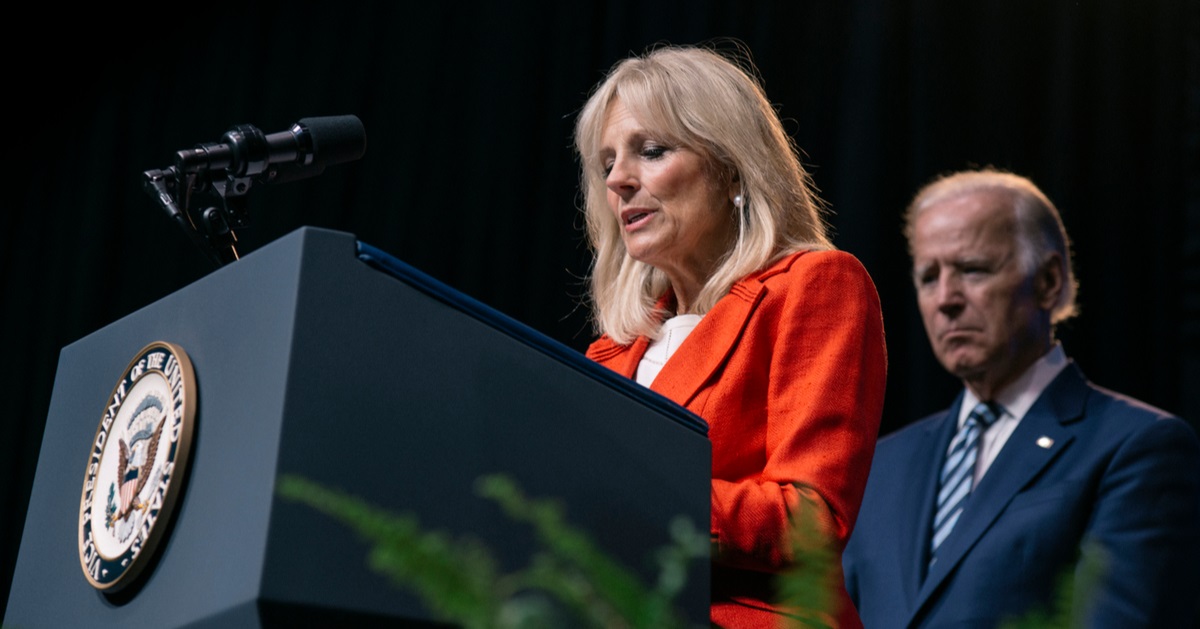Senate pushing forward on proposed border deal that is likely 'dead on arrival' in House
A small bipartisan group of senators reportedly reached a deal on Friday after months of negotiations on new authorities for the executive branch that would ostensibly address and substantially reduce that illegal immigration crisis at the southern border.
The senators pushed forward to reach that agreement despite being warned earlier in no uncertain terms by Speaker Mike Johnson (R-LA) that the deal, at least based on some of the leaked details, would be "dead on arrival" in the House, Just the News reported.
Republican critics have argued that the border security proposal doesn't go far enough, that President Joe Biden already has ample authority to address the illegal migration catastrophe, that it is tied to more defense aid for Ukraine, and that Senate leadership has pushed for a rapid vote before anybody has read the as-yet-unreleased legislation.
Schumer pushing for rapid vote on unseen border proposal
The Associated Press reported Friday that Senate negotiators announced they had reached a tentative agreement on a border security deal -- which has been linked with supplemental defense funding for Ukraine, Israel, and Taiwan, among a few other things -- and that the text of the legislation would be released this weekend after a final few remaining details were worked out.
Sen. Chris Murphy (D-CT), the lead Democratic negotiator, said in an X post on Friday, "Republicans said the border is a priority and we should craft a bipartisan bill to help control the border. We did that. We have a deal. It’s decision time."
Unfortunately, senators won't have much time to consider their decision fully, according to Just the News, as Senate Majority Leader Chuck Schumer announced on Thursday his plans to fast-track the voting procedures for the deal on Monday with a final vote just days later on legislation that most senators haven't even seen yet.
That plan from Schumer received a hearty "hell no" from Sen. Mike Lee (R-UT), who lamented the rapid timeline for the still-unreleased bill in an op-ed for The Federalist, and wrote that "under no circumstances should this bill -- which would fund military operations in three distant parts of the world and make massive, permanent changes to immigration law -- be passed next week."
"Nor should it be passed until we have had adequate time to read the bill, discuss it with constituents, debate it, offer amendments, and vote on those amendments," Lee added. "There’s no universe in which those things will happen by next week."
Speaker Johnson says border deal likely "dead on arrival" in House
Sen. Schumer's rushed pace also appears to be a waste of time, as The Hill reported last week that Speaker Johnson made it clear in a letter to Senate leaders that the border deal wouldn't fly in the House, at least not if it included some of the same provisions that were mentioned in leak-based media reports.
"I wanted to provide a brief update regarding the supplemental and the border, since the Senate appears unable to reach any agreement," Johnson wrote at the time. "If rumors about the contents of the draft proposal are true, it would have been dead on arrival in the House anyway."
The Speaker added in conclusion, "I am emphasizing again today that House Republicans will vigorously oppose any policy proposal from the White House or Senate that would further incentivize illegal aliens to break our laws."
Too harsh or not strict enough?
A likely major sticking point for Republicans, per a CBS News report last week, is that the deal would supposedly only authorize a temporary shutdown of the border if illegal crossings averaged 5,000 per day for a week or 8,500 in a single day -- which means anywhere from 1.8 to 3 million illegal migrants would be permitted entry annually.
There are some seemingly good provisions in the proposal, though, such as limitations on President Biden's parole authority and the asylum process, which would also be sped up, and tougher penalties for illegal crossers during periods when the border is ostensibly shut down, among other things.
Interestingly enough, it may not be just House Republicans who kill this package deal, as the AP noted that while conservatives complain about the border measures not being strict enough and the extra aid for Ukraine, House Hispanic Caucus members and House progressives have complained that the deal is too strict and they were left out of the negotiating process, as some have also objected to the additional military aid for Israel in its fight against Hamas in Gaza.






